Graham Reid | | 3 min read
Son Seals: Goin' Home (1984)
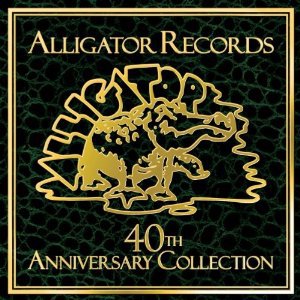
In his excellent book More Miles
Than Money, subtitled “journeys through American music”, the
expat London-based writer Garth Cartwright meets Bruce Iglauer who
founded the Alligator blues label in Chicago which became that city's
most important label after Chess went belly-up in 1975.
As Cartwright notes, the label was home
to exceptional talents like the earthy bellower Koko Taylor, the
incendiary guitarist Albert Collins, younger talents like Li'l Ed
with his Blues Imperials, the short-lived but extraordinary Hound Dog
Taylor, and then just a roll-call of other greats: Son Seals, Luther
Allison, Lonnie Brooks, James Cotton . . .
Iglauer was still worked a 72-hour week
but couldn't pay healthcare and profit sharing to the good people
working for him, and had dedicated his life to Chicago blues yet
never came near “the kind of money common in the rock and rap
industry”.
“The Alligator offices are sparse,
furniture and fittings resemble those of a thrift shop.”
Yet four decades on the label is still
here – and this double disc retrospective showcases some of the
profoundly talented, fiery and white-knuckle artists it recorded
under the banner “genuine houserockin' music”.
These days many look to the Fat Possum
and Alive labels for their blues (A.A. Bondy, T-Model Ford, R.L. Burnside, Black
Keys, Junior Kimbrough) which have picked up a more rural but equally
gritty kind of electric blues and has tail-ended Alligator.
But this 38-song collection shows
Alligator to still be pulling out great acts like JJ Grey and Mofro
(Grey a white guy from Florida who played all the chicken-wire bars
and juke joints), guitarist Tinsley Ellis, 31-year old r'n'b belter
Shemekia Copeland (daughter of guitarist Johnny) and Corey Harris.
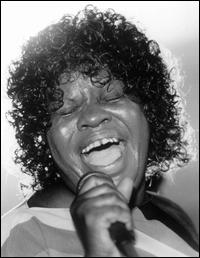 Of course the cornerstone names on
Alligator grab attention and the late Koko Taylor sounds as
menacingly sexual today on her gender-flip of Bo Diddley's I'm A
Man on I'm a Woman (“I could make love to a crocodile”)
as she did in 1978. It's a helluva opener.
Of course the cornerstone names on
Alligator grab attention and the late Koko Taylor sounds as
menacingly sexual today on her gender-flip of Bo Diddley's I'm A
Man on I'm a Woman (“I could make love to a crocodile”)
as she did in 1978. It's a helluva opener.
Thereafter start ticking off
razor-sharp guitarists: Albert Collins with I Ain't Drunk
(“I'm just drinkin' “); Li'l Ed with the overdrive Icicles in
my Meatloaf from 2006; Guitar Shorty who influenced a young
Hendrix whipping out threatening wah-wah; Johnny Winter, Coco Montoya
who found his feet in John Mayall's Bluesbeakers for a decade; Lonnie
Mack with Stevie Ray Vaughan setting a land-speed record on Double
Whammy; the barbed wire guitar of Hound Dog Taylor who only had
four year and half years between his first album and death from
cancer but delivered two essential Chicago blues-rock albums out of
his $50 guitar . . .
When the blues migrated from Southern
plantations to the factories and streets of Chicago it had to meet
the demands of its hard working, hard drinking inner-city audience.
The volume went up and the songs got tougher.
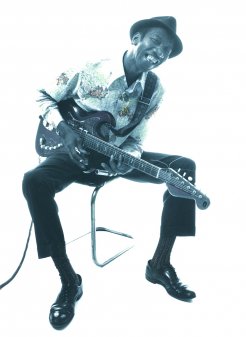 Alligator, as Cartwright observes, was
“capturing post-civil rights blues like no one else, music rural in
origin but blunted, pessimistic, from decades in the urban ghetto”
and that “the likes of Hound Dog Taylor and Son Seals made music
tougher, more dissonant, than Iggy Pop and Black Flag”.
Alligator, as Cartwright observes, was
“capturing post-civil rights blues like no one else, music rural in
origin but blunted, pessimistic, from decades in the urban ghetto”
and that “the likes of Hound Dog Taylor and Son Seals made music
tougher, more dissonant, than Iggy Pop and Black Flag”.
The music was angry, sexual, cathartic
and sometimes just a whole lot of fun.
Bruce Iglauer started his company with
US$2500 and in 1988 when I spoke to him he was still going home to
stuff envelopes and send to 5500 record stores while listening to
demo tapes from hopefuls. Not a lot has changed for him.
Alligator Records was always hands-on,
often marginally profitable and all about the artists. Iglauer would
give some a leg up to bigger labels – Stevie Ray, Son Seals – or
lose them along the way like the tragic and troubled Roy Buchanan.
But this double disc proves Alligator blues was and is important, and it can still speak to us today.
Want more blues? Then go here. And check this out.

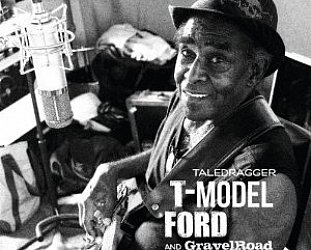

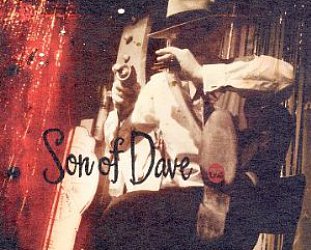
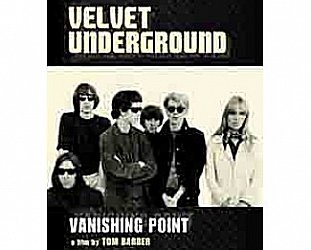

post a comment